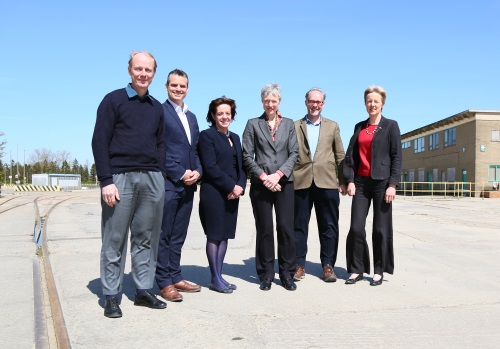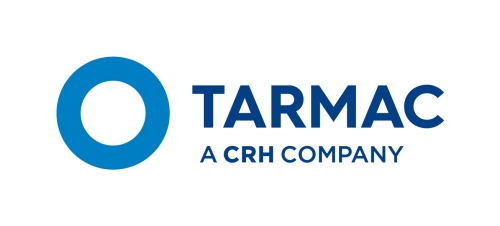Message from our External Sustainability Panel
Over the last year, our dialogue with Tarmac has continued to be vigorous and challenging. Our core aim has been to help the company identify and deliver the business case for sustainability while continuing to ensure that stakeholders’ expectations are reflected in areas which range from the management of wildlife to the maintenance of a sustainable supply chain.
Over the last twelve months, there has been significant progress with initiatives to embed the sustainability strategy throughout the business. Against this background, three topics have been central to our discussions with the company.

(External sustainability panel from left to right; Tony Burton OBE, Andy Brown, Bellinda Howell, Penny Shepherd, Peter Halsall, Jiggy Lloyd, Shaun McCarthy OBE (not pictured)
Sustainable solutions
The Panel has strongly supported Tarmac’s drive to be a provider of sustainable solutions, and encouraged the company to be both ambitious and rigorous in its approach. The UK faces significant obstacles to the provision of sustainable housing and infrastructure. We believe Tarmac can achieve business success by innovating to address these obstacles, but delivering solutions that are genuinely sustainable will take the company beyond its traditional markets. We have been pleased with achievements to date; for instance, new products have been developed and appropriate certifications have been obtained. But we think the greatest opportunities to cater for the country’s needs in a truly sustainable way require the company to embrace the entire building process, and be guided by the needs of the end-users or occupiers. Tarmac is well placed to benefit from doing this.
Circular economy
Secondly, we have encouraged Tarmac to consider how a more circular economy – as sought by many parties – should shape its strategy for mineral supply and land management. Tarmac’s stakeholders will rightly expect that the company’s mineral supply strategy is consistent with a circular and sustainable perspective. This need not exclude land-based or marine extraction of minerals but it will require a long-term approach to the management of assets. The company’s track record in land management is excellent but the strategic picture is more challenging; we look forward to helping shape the strategy to respond.
The mission of the Tarmac External Sustainability Panel is to provide advice and guidance, and to serve as “critical friends” of the company as it undergoes its transformation to a provider of sustainable solutions.
The Panel fulfils its role chiefly by meeting the Tarmac Executive at intervals during the year, informed by site visits and background information. At those meetings, discussions embrace the strategic direction of the business, its response to emerging sustainability issues and other topics requested by the Panel or suggested by the company.
It is not the role of the Panel to scrutinise performance data or to audit the company’s activities, but to provide high-level, strategic guidance. The commentary here does not therefore constitute a review or audit of this report.
People
The third topic is people. Our interaction with the company is not limited to dialogue with the executive but includes site visits and engagement with a variety of Tarmac employees. As in previous years, we have observed that Tarmac is staffed by highly committed and knowledgeable individuals. This affords the company a great strength as it pursues its sustainability vision. We have been particularly impressed to see in the last year in particular, and despite the potential distraction of the change in ownership, ambitious programmes to attract graduates and develop apprentices and to foster a climate in which diversity and talent are nurtured. We believe that these programmes place the company in an excellent position to benefit from the opportunities and challenges that Millennials bring into the workforce.
A Panel such as ours can only make a contribution where there is engagement from the company, resources to ensure debates are well-informed, and a shared commitment to the sustainability agenda. We have experienced all of these in our encounters with Tarmac to date and remain confident that further progress will be made.
